Two-minute review
Even with a month of testing, we can’t muster much passion in this Poco Watch review, either positive or negative. This by-the-numbers smartwatch certainly doesn’t disappoint – but it also doesn’t entice either.
The Poco Watch is the debut smartwatch from Pocophone, which has made a name for itself by pumping out powerful yet affordable budget phones. There’s quite a tradition of phone brands making wearables to complement their handsets; the Xiaomi Mi Watch, Honor Magic Watch and the Oppo Watch come to mind as examples from other Chinese companies, and each is vying for a place on our list of the best smartwatches or best cheap smartwatches.
Unlike the Samsung Galaxy Watch 4 or Apple Watch 7, though, the Poco Watch lies within the ‘budget’ end of the spectrum, which fits Poco’s Modus Operandi. However, while Poco’s smartphones excel with top features despite the low prices, its smartwatch doesn’t do much to stand out amongst its competitors.
The device does everything you expect from a budget wearable: it lets you receive notifications on your wrist, tracks certain types of exercise, counts your steps and so on. All of these functions work just fine.
It has a great battery life too as it lasts two weeks, which is much longer than the battery life on lots of other smartwatches.
But it doesn’t offer anything we haven’t seen before – and haven’t seen for cheaper, crucially – with its feature set being near-identical to that of many similar smartwatches.
Poco could have taken a leaf out of its smartphone book by finding a unique selling point for the device, perhaps a way it ties into mobiles or a special fitness tracking mode. But at the moment, we can’t understand why people should buy it.
Poco Watch price and availability
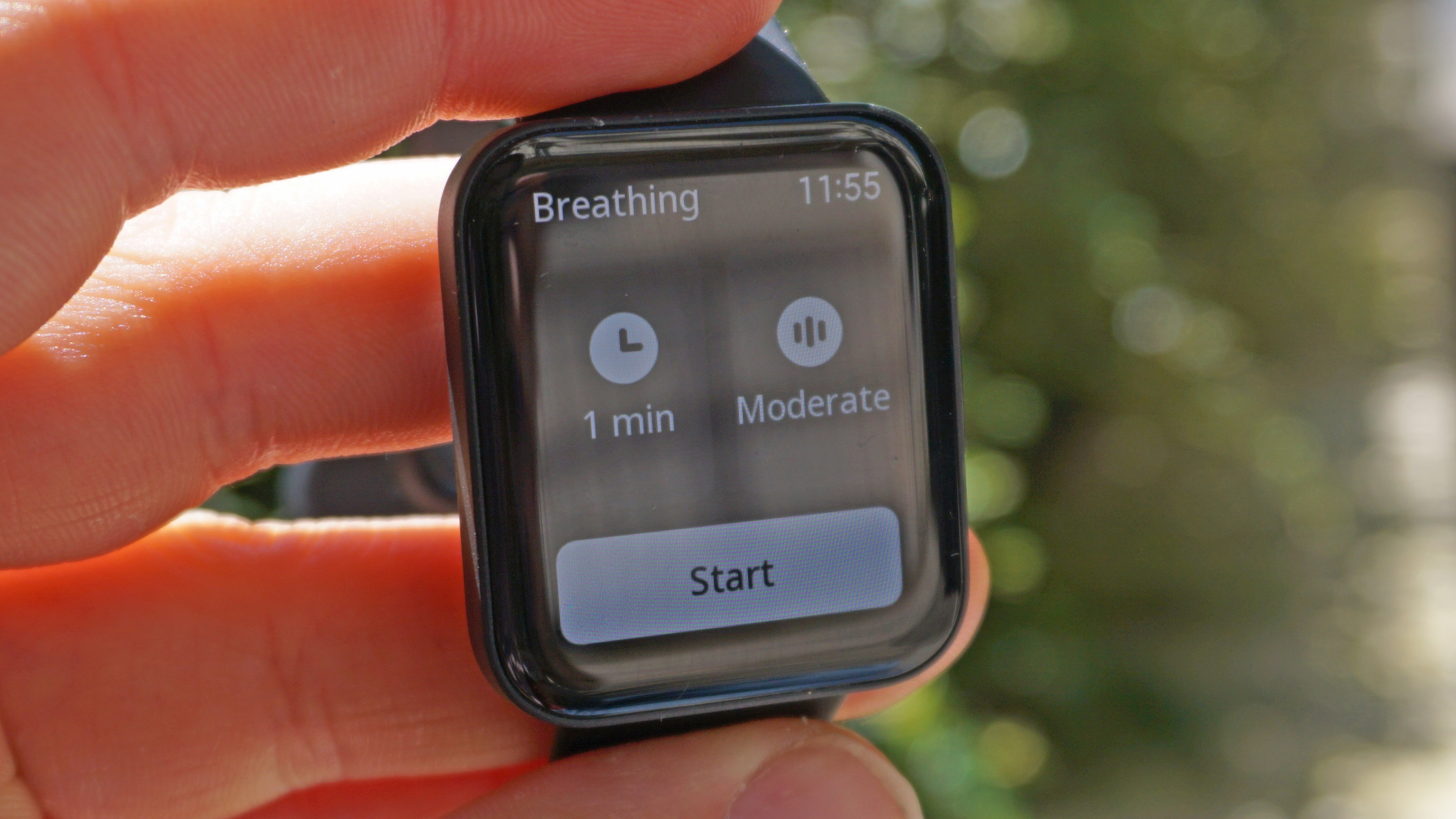
The Poco Watch will be available in the UK. Since Poco generally doesn’t sell its devices in the US or Australia, don’t get your hopes up for availability outside Europe.
The Watch costs £79.99 (roughly $100 / AU$140), so it’s pretty affordable as smartwatches go, heartily undercutting alternatives from Apple, Samsung, Xiaomi and Oppo. But if you’re on the hunt for a budget smartwatch, Amazfit does have a few alternatives with more features.
One rival we want to highlight is the Honor Watch ES, which launched for £99.99 (roughly $130, AU$175). Sure, it’s a touch pricier than the Poco Watch, but it has a few unique features – like its Fitness Course modes – proving that affordable smartwatches can still stand out.
Poco Watch design and display
Like the vast majority of smartwatches, the Poco Watch consists of a body and two removable straps. Well, ‘removable’ in theory, since the button that you need to press to remove them is incredibly hard to depress.
You can buy beige, navy or black versions of the smartwatch, and as the images show, we tested the latter version. Both the strap and the body of the watch come in the chosen color.
The fit in general is pretty comfortable, particularly since the Watch is fairly lightweight at only 31g, including the straps. These straps are made of thermoplastic polyurethane (TPU), a synthetic material that is slightly less irritating than rubber. It doesn’t rub as much as silicon and isn’t too irritating for those with skin conditions. There are plenty of holes in the band too, so you can easily adjust the fit for all different wrist sizes.
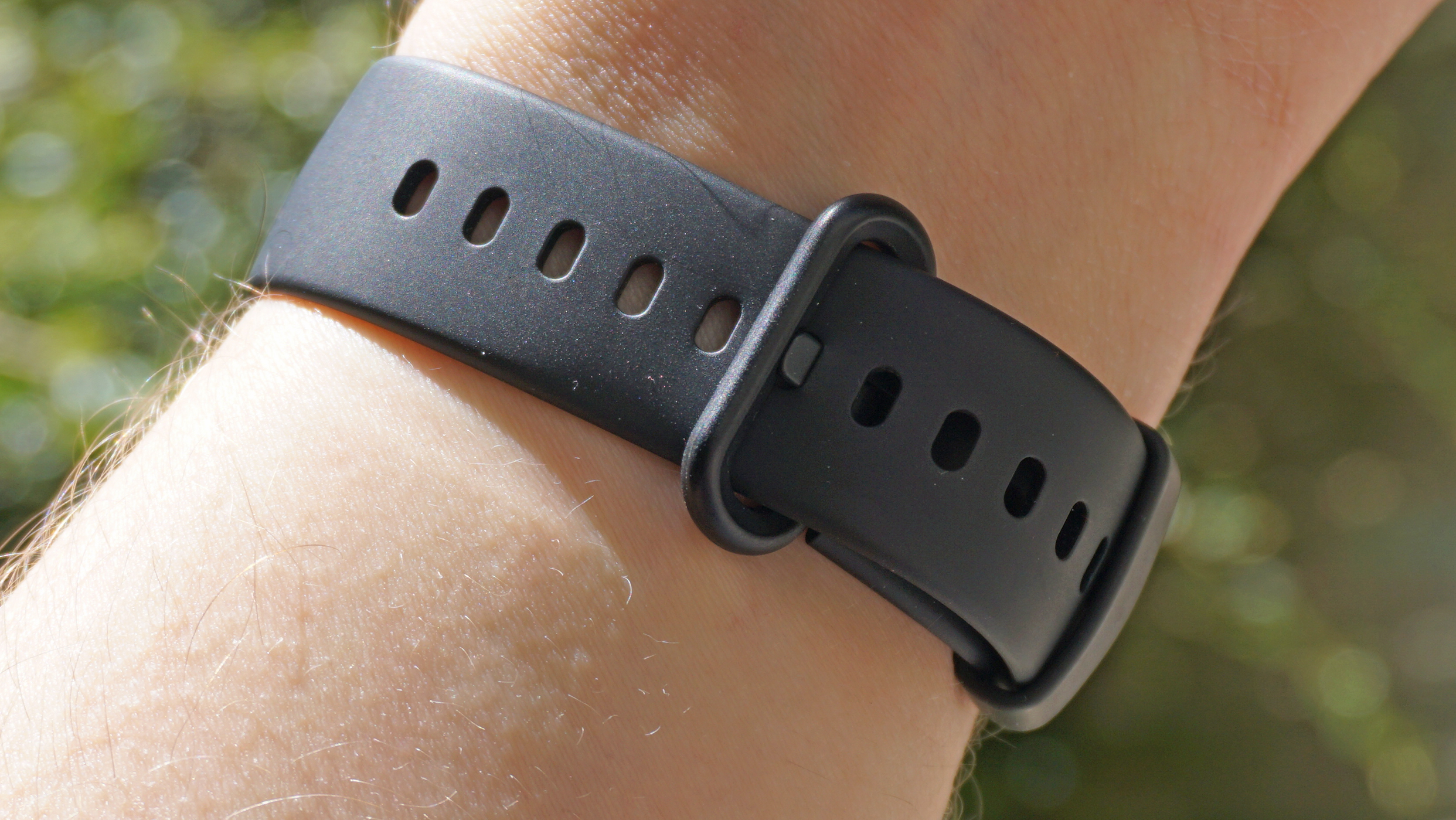
The body is square, like an Apple Watch, but without some of the latter’s design flair. It has one button, on the right edge, which was occasionally a little fiddly to press, but nowhere near as troublesome as the strap button.
The material on that square body is hardy but lightweight, making it a great choice for a smartwatch. You can bump the thing when on a run, or fall over while it’s on your wrist, with low risk of damaging its face. It has a 5ATM water resistance, which means the watch can withstand the pressure of about 50 meters of water.
The display is 1.6 inches diagonally, with a resolution of 360 x 320 and AMOLED tech. The latter is the standard in smartwatches, as the high brightness and contrast it provides makes watches easy to view outdoors.
Poco Watch performance and software
The vast majority of proprietary operating systems for smartwatches feel very similar, at least outside of WatchOS, Wear OS and HarmonyOS – and the Poco Watch is no exception.
From the main watch face, you can swipe down to bring up your notifications list or up for our quick settings list; swiping to the sides takes you through a carousel of features like heart rate monitoring, weather reports or music controls.
If you press the home button, you’re taken to the apps list, which can be quite overwhelming since the apps don’t have labels – you have to guess what they are based on the logo. So when alarms, stopwatches and timers all have clock-looking logos, it’s very hard to tell which app you’re looking at. Using the watch for some time helps you learn the differences though.
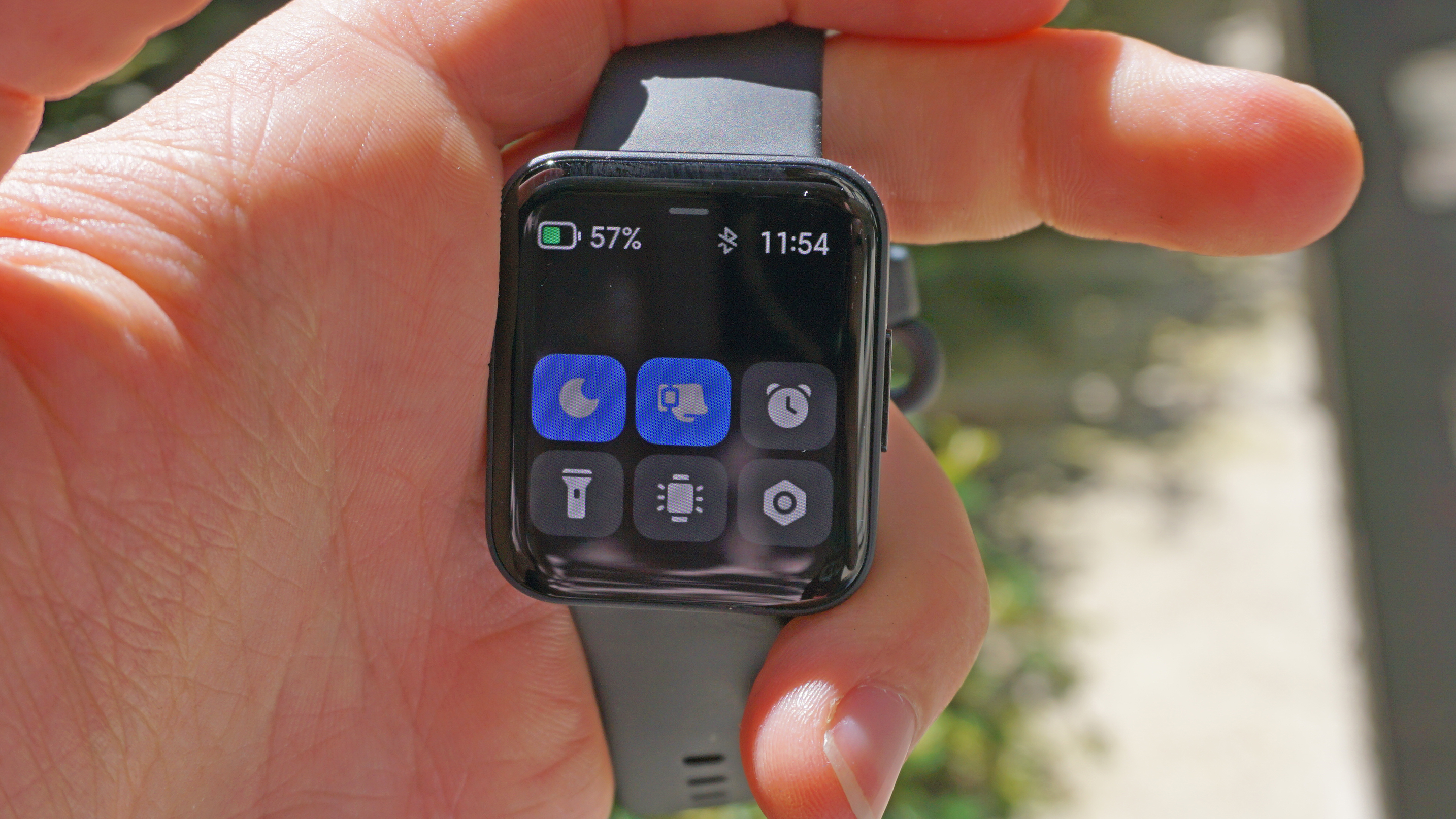
The Poco Watch software being overfamiliar isn’t an issue, as it makes navigation easier for smartwatch aficionados (well, apart from the weird lack of app tags in the list). Plus, the art style and color scheme are quite attractive.
Navigating the watch is a breeze since the software is snappy and intuitive. Poco hasn’t detailed the chipset available in the watch, but it’s up to the job of powering the device.
A few extra modes here include breathing exercises, music controls, notification handling (so you can read notifications, but not respond) and a remote shutter for your smartphone camera.
There were a few bugs in the software. We never got the remote shutter tool to work – our smartphone never wanted to acknowledge it – and notifications were often received on the watch several times. Music controls generally worked fine, but now and then the watch didn’t recognize when music was playing on our phone.
Poco Watch fitness
The Poco Watch has over 100 fitness modes… but not all modes are created equally.
Some of the core modes, like Running, have a fair few reported metrics. Running tells you your time, total kcal, active kcal, average pace, max pace, average speed, steps, cadence, stride and heart rate (in a graph and zone breakdown). All of this will be useful for a budding runner, but for the elite performers, you’re not getting as much information as you would in a dedicated running watch.
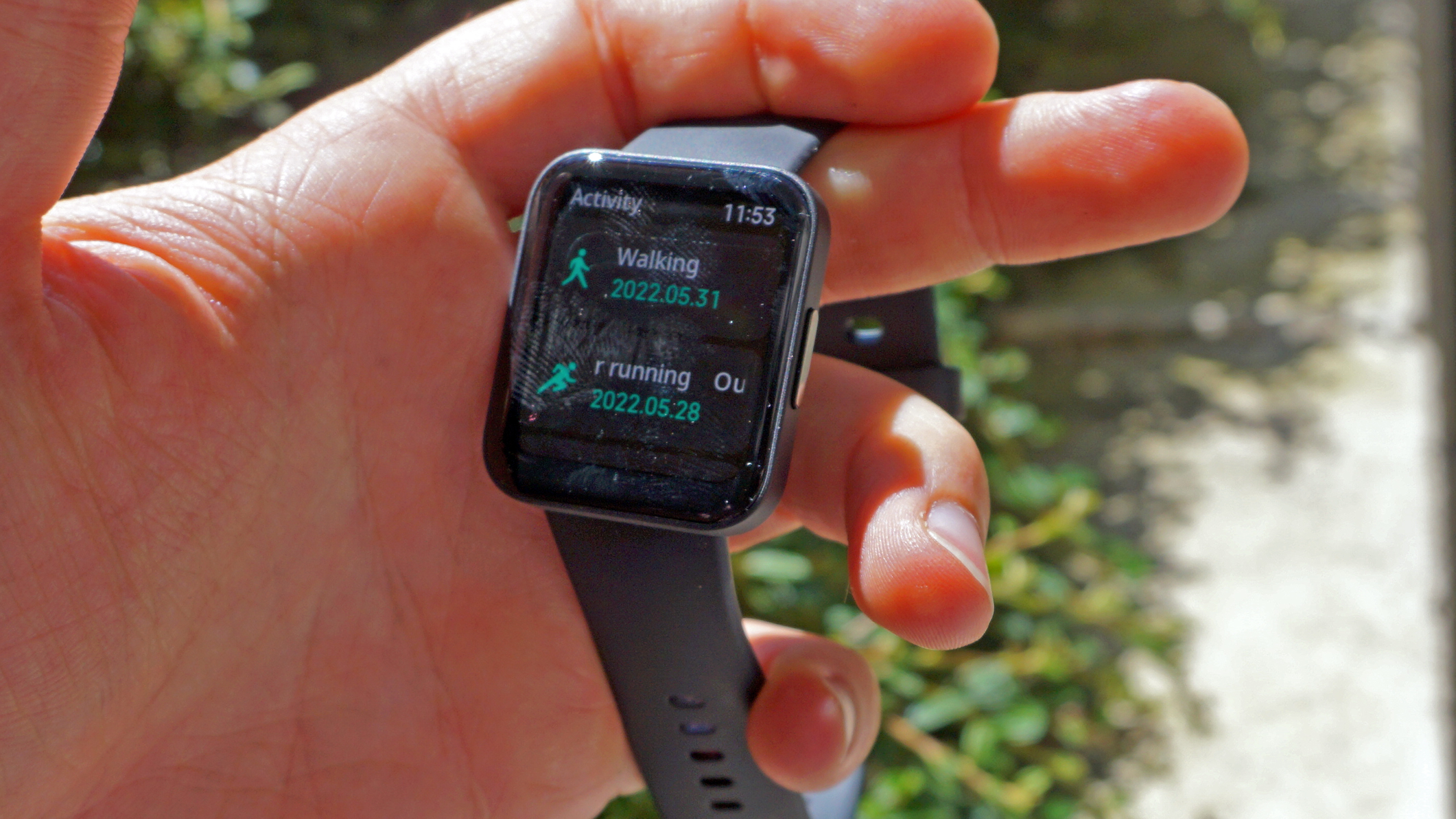
But if you pick some of the more niche activities tracked, like snowmobile riding or latin dance, you won’t get as much activity-specific information as with running mode. Baseball mode isn’t going to give you match-related information, details on your swings, or anything like that.
Some of these modes are clearly filler ones, especially when you consider that hiking, trekking and outdoor walking are all listed as separate activities. Still, for the common activities, or for people who don’t need detailed breakdowns, the Poco Watch is fine.
Don’t expect any training advice though – and take the data with a pinch of salt, as when we went running with the watch, it had a weird tendency to log our heart rate as V02 Max (the most intensive option) for the entire workout, even for gentler runs.
Unlike many other budget smartwatches, there’s also built-in GPS here too, meaning you can use the watch without your phone, or at least without relying on your smartphone’s own GPS system. We found that distance tracked was more accurate than on devices with connected GPS (which relies on your phone’s GPS).
The Poco watch can track heart rate, Sp02, steps, menstrual cycle and your sleep, though for lots of these metrics, you actually need to use the tie-in smartwatch app to get your data. Like with the fitness modes, these are useful for keeping tabs on your health, but you’re not going to get the same depth of data as with a more expensive device.
Poco Watch battery life
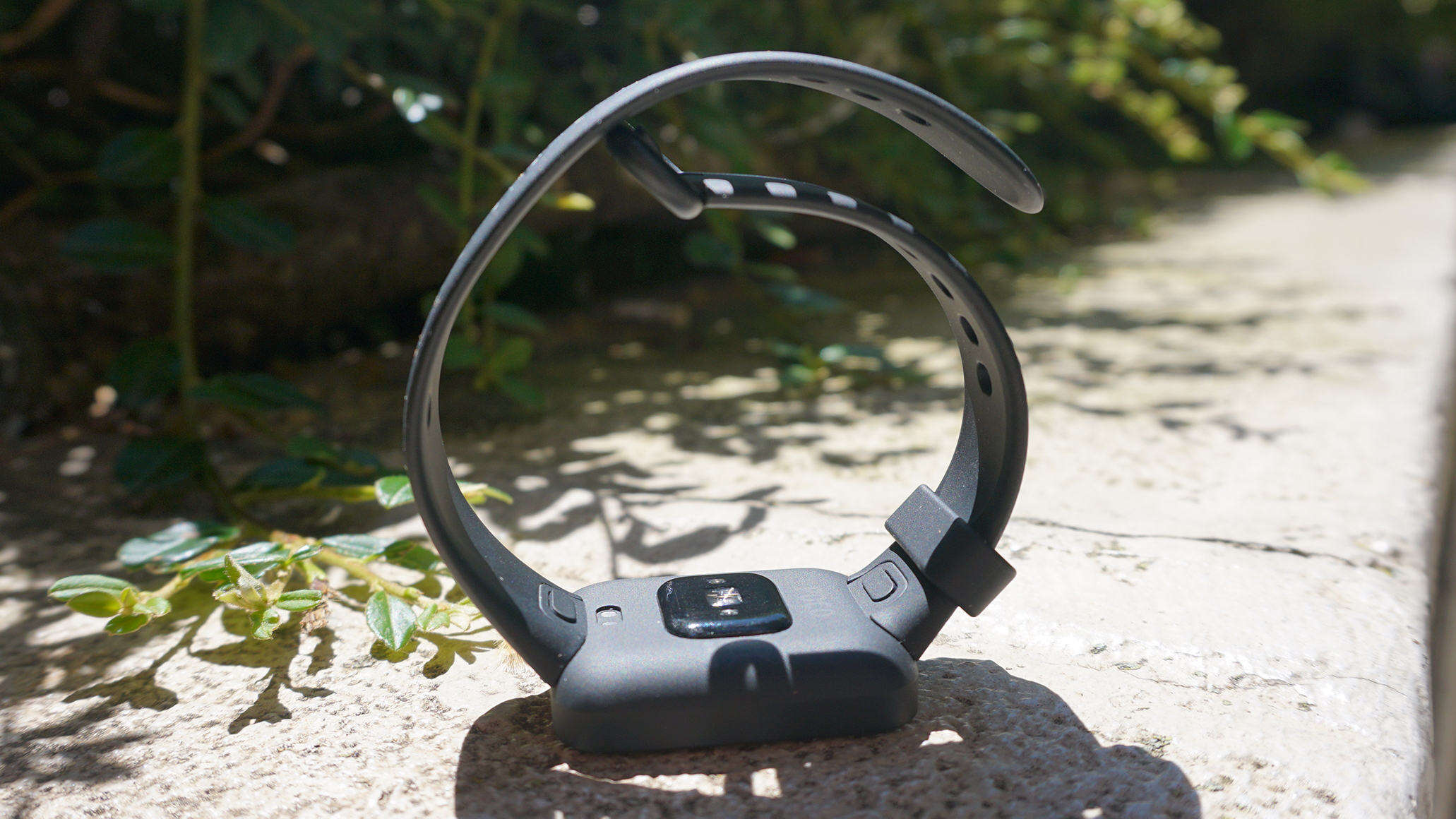
When we heard Poco’s claim that its smartwatch would have a two-week battery life, we were dubious – the body seems slender, so we didn’t imagine it could have a very big battery.
We were wrong though. From our testing, the Poco Watch definitely does have a two-week battery life. That was with the occasional workout, but obviously if you go for two-hour-long runs every single day, you won’t see the device lasting quite that long. Using the always-on display function will also greatly reduce that figure.
Charging is done with a small magnetic pin charger that comes with the device and plugs into any USB-A port, like in a wall plug or your PC.
Poco Watch review scorecard
| Attributes | Notes | Rating |
|---|---|---|
| Design and display | The Poco Watch has a fairly standard look and display – nothing to write home about. | 3/5 |
| Performance and software | Slightly-buggy software aside, the Poco Watch runs just fine. | 3/5 |
| Fitness | The Poco Watch has the standard collection of fitness modes, though only a select few have much depth. | 3/5 |
| Battery | Clocking in at two weeks, the Poco watch has a fairly good battery life compared to competitors – though there are rivals that last up to a month. | 4/5 |
| Value | The Poco Watch is fairly affordable, though it’s not the cheapest smartwatch we’ve seen | 4/5 |
Should you buy the Poco Watch?
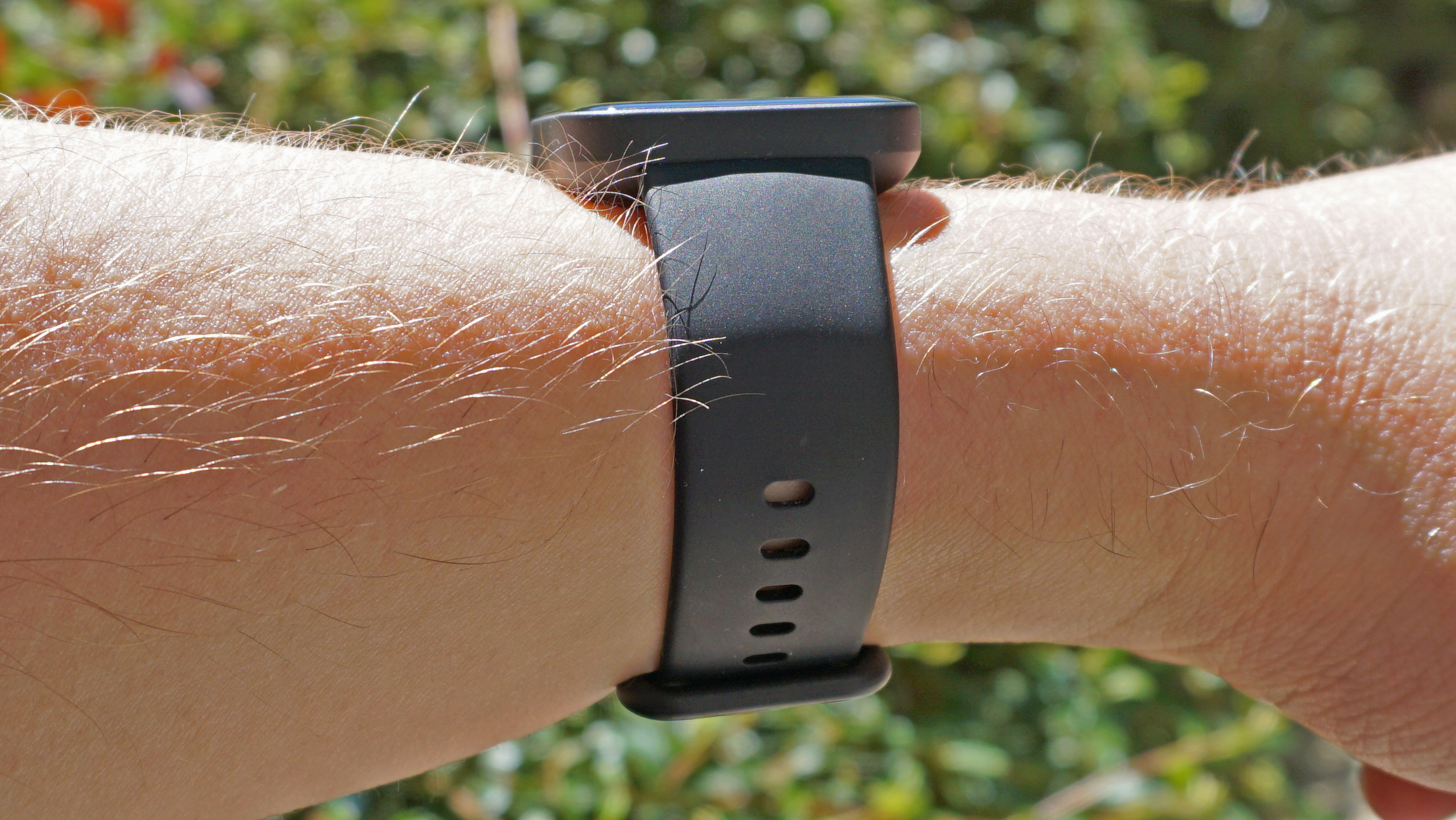
Buy it if…
Don’t buy it if…
Also consider
If this Poco Watch review hasn’t sated your appetite for a new smartwatch, here are some alternatives.




